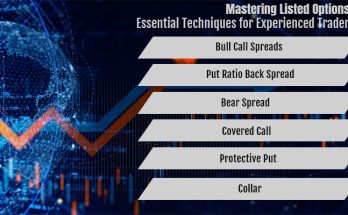Find out how you can combine your bank loan and card debt in one pending. When someone has multiple loans and debts on their credit card, they often offer debt purchases to combine all pending loans into one. That’s called debt consolidation. Do you know the advantages and in what cases you should ask for them?
In this case, the bank offers consolidation of the debts held by the debtor with other institutions and thus gains new clients, provides better credit conditions, and, therefore, the client can avoid risks.
Next, in three easy steps, you should know about this financial strategy to see if debt consolidation is right for you.
1. Keep track of your debts.
- Check your credit score and debt-to-income ratio to see where you stand.
- List your loan and credit card balances, including interest rates and monthly payments. The most common debt to consolidate is credit card debt, which has the highest interest rates. It can also include other types of debt, such as personal loans, payday loans or medical bills.
- Calculate the total outstanding balance and monthly payments
2. Explore your debt consolidation options.
- How it works: Once you know your number, you can start looking for a new loan to cover your debt. If you are approved for a loan, you will receive loan proceeds to pay off your existing debt, after which you can start making monthly payments on the new loan.
- Consider your options. credit9 offers personal loan options for debt consolidation. You will be based on the specifics of your credit application, including a review of your credit history, the amount of credit requested, and credit verification income. Some lenders may offer secured loan options at a slightly lower interest rate, but keep in mind that you risk losing your collateral if you don’t pay off the loan as agreed.
3. Find out before you ask for a loan.
If you decide that debt consolidation is right for you, keep the following in mind:
- Debt consolidation is not the elimination of your debts. You will restructure your debt, not eliminate it.
- Understand the costs. Consider the total cost of the loan. Loans with longer terms may have lower monthly payments, but they can also increase the amount you have to pay throughout the loan.
- Avoid future debt. Learn good credit habits and create a budget to help you control your future expenses.
- Review alternative methods for paying off your debt. If a consolidation loan isn’t the right choice, compare the “snowball” and “avalanche” ways of paying off debt.
WHAT IS DEBT CONSOLIDATION?
Debt consolidation is when you combine all the credit you maintain, even with different financial entities. It is new financing to cancel every loan. Learn more about silverlake financial. So instead of making multiple minimum monthly payments across various accounts, you’ll make one with less interest, saving time and avoiding the risk of forgetting to pay fees.
WHEN CAN I CONSOLIDATE MY FINANCIAL DEBT?
When there is a short-term liquidity problem, it is better to do debt consolidation because the interest is lower and the administrative costs are reduced. Paying off multiple debts with a mobilend loan and one monthly payment can help you:
- Lower your total monthly expenses and increase your cash flow
- Reduce stress by having fewer bills to worry about,
- Reach your savings goal faster with the extra money you save
- Lower your credit utilization ratio, which can help you improve your credit score
WHAT ARE THE ADVANTAGES OF DEBT CONSOLIDATION OR PURCHASE?
The benefits of debt consolidation are
- Message: instead of having multiple instalments with different expiry dates, there will now be a single disbursement that can be strategically scheduled. You will avoid these errors and only have one cancellation date.
- Savings and liquidity. Having obligations with more than one financial institution also results in paying different interest rates at each institution, paying more and losing money. If you combine your debts, you will pay one interest. Consolidation loans are for a longer term, meaning the monthly payments will be much lower. That will give you liquidity.
Better credit history. You avoid forgetting to pay one debt and affecting your credit history by only having one debt.





